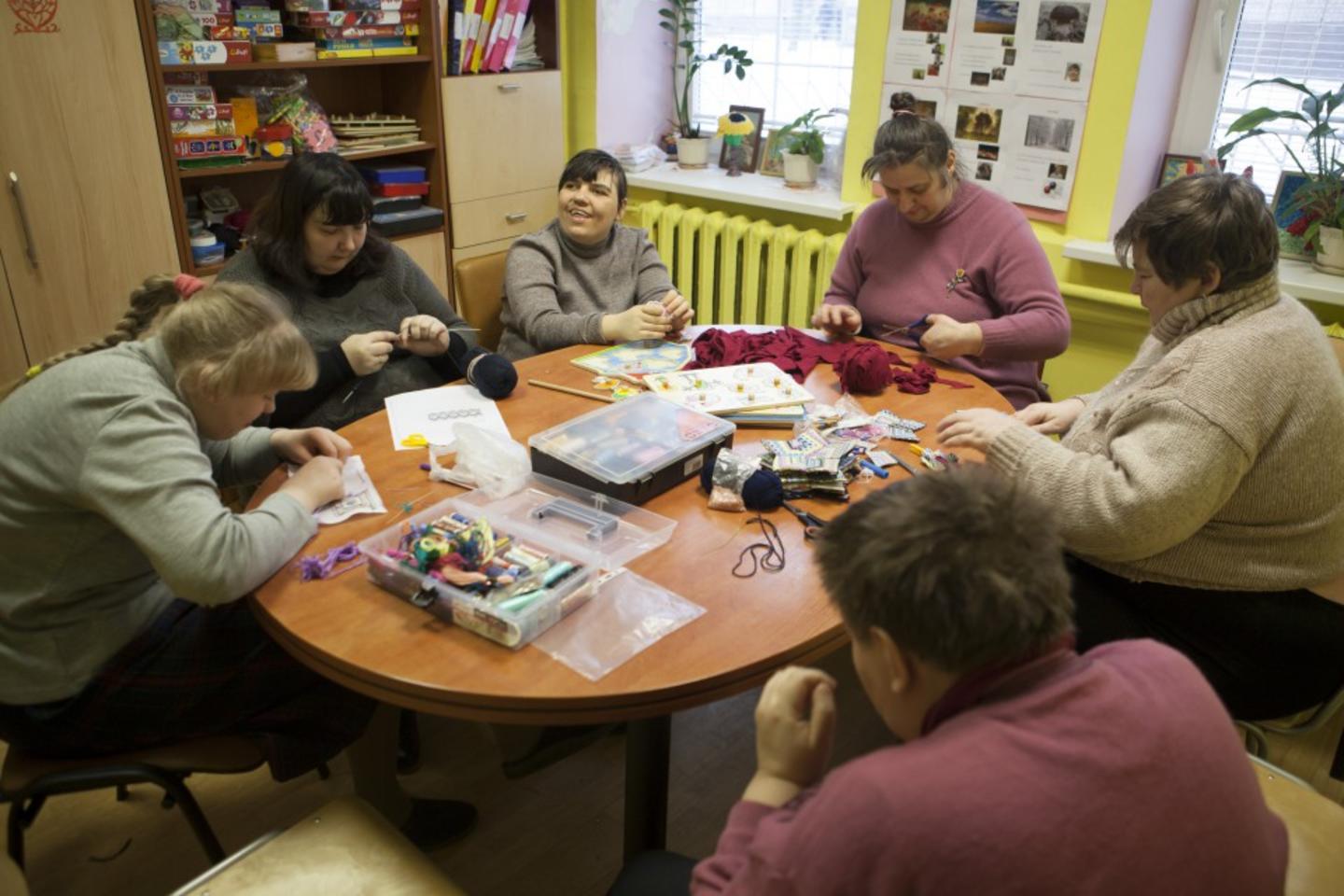Many such families, particularly those living in the rural provinces are just about managing to get by and often fear the future. This sense of isolation is compounded by the fact that the general public is very reticent to engage with older people with disabilities.
Around the world, there are many people born with disabilities who, together with their families, live a full life. So how can the situation be improved in Lithuania?
In one project supported by Iceland, Liechtenstein and Norway through the NGO programme, professionals from Iceland share their experience.
In early May 2015, partners from Iceland visited the Lithuanian NGO, Vilniaus Viltis, (Association Welfare Society for Persons with Mental Disability). The Icelandic partners, ‘As styrktarfelag’ organisation, are one of the largest non-profit organisations in Iceland responsible for the organisation and provision of services for people with intellectual disabilities. The services it provides are wide-ranging such as children‘s daycare, adult employment, independent living, home adaptation and construction among others.
The Icelandic partners are helping to make such services possible in Lithuania too. Learning from good practice in Iceland has helped Vilniaus Viltis strengthen its capacity to better advocate for and represent the interests of people with learning disabilities.
While the aim of improving services to support the individual is self-evident, getting the implementation right on how to deliver such support is not always easy. The partners shared some very touching stories. Their treatment of disabled individuals follows a specific approach – always think of them as a person first and secondly as having a disability. These are people who have the right to choose, to say NO, to be heard and understood, just like every other individual.
The current situation in Lithuania can be illustrated by Vincas's situation. Vincas is 45, has intellectual disabilities, he uses social daycare services and lives with his parents who are in their seventies. While his parents are members of the Vilniaus Viltis organisation, because of their poor health, they and their son rarely join the community organised events. Living in poverty, the devoted parents exist day by day, reliant on retirement and disability benefits. The costs of medication, daily living expenses and taxes however, exceed the amount they receive, making everyday life even more difficult.
The Icelandic partners are convinced there is another way. For example, Authur, 40, lives independently in an apartment in Iceland. He has an assistant who helps him to live a dignified and independent life. Arthur is free to choose from a range of activities and his life is varied and active. The services provided enable him to have freedom and make his own decisions. He, along with his friends, is able to participate in activities that are suitable for his health condition and age.
In the meantime his parents are also able to live their life, manage their health issues and enjoy their son‘s autonomy. Furthermore, the parents‘ health issues do not prevent their son from actively participating in activities as this is handled by the institution where Arthur lives, in cooperation with other organisations.
In Iceland, the needs of ageing disabled people are taken into consideration as they have different needs than younger people.
There are ageing people with disabilities in Lithuania too, so it is important to be more attentive to their needs and provide services that are compatible with their age and needs. Public attitudes need to change – everyone can and should have the chance to live independently. This project is just one small step on the way to making it happen.
